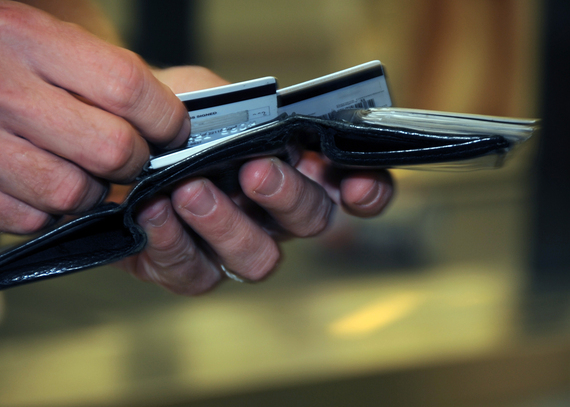
We've all been there, sitting across the table hopelessly staring at a date wondering the possibility of a future together. Breaking awkward silences with the same simple questions. The basic Qs & As that have dominated first date conversations since Danny Zuko and Sandy Olsson. But for decades we've neglected the most important question of all, "What's your credit score?"
Sure, this may initially come off as traditionally unromantic and personal, but you must accept the society in which we live today. Online dating sites and apps such as Tinder continuously unromantically increase their market share of the most eligible bachelors and bachelorettes. No, not the same people who capture the hearts belonging to millions of hopeless romantics each week on television.
I'm talking about the real life inventory of future husbands and wives. The same people you're comfortable enough to inquiry and consider a far less significant, yet more personal number; the number of past sexual partners.
Much like the pride we take in our number, physical appearance, career and hobbies; it's time we accept financial responsibility and take accountability in our credit score. We live in a society fearless of self-bravado while picking up a bill, yet petrified to check account balances and due dates.
I can't stress enough the importance, especially for millennials to face the topic of debt within relationships. As a generation we enter the work force with an overflowing suitcase of student loans. That number continues to increase for graduates each year without any sign of an upcoming plateau.
According to the Wall Street Journal, the average 2014 graduate holding student loans will have to pay back $33,000. That's up from around $31,000 in 2013. Compare that to the 1993 class, which only had $10,000 in debt.
These numbers can be overwhelming considering a recent study by the Economic Policy Institute found unemployment rates for 2014 college graduates reached 8.5% with underemployment rates nearly doubling at 16.8%.
As you can see, young adults are beginning their careers a few steps behind previous generations. With more debt and arguably less opportunity, we constantly face the temptation to keep up with the Joneses. What may appear as a suitable lifestyle on the outside could very easily be masking a financial nightmare. A lifestyle sustained by maxing out credit cards and living paycheck to paycheck.

(Photo credit: businessfactors.com)
To truly climb out of the current economic hole as a country and to ensure financial flexibility for the future, we must face debt head-on. Our country can't afford for this generation to repeat the same mistakes. The working class living outside their means, applying for loans they cannot afford, and relying on credit cards to purchase wants rather than needs. This means becoming comfortable enough as a society, to begin desiring a partner who takes accountability for their spending habits. In turn, this applies pressure on all to pursue financial stability which can lead to a healthier economy.
Millennials are next up to fix the burden that has become our economic crisis. This includes strengthening an improving real estate market and aiding in the automotive rebound. In order to do so, a healthy credit score is required for loan approval and to ensure the best interest rates.
Without a sufficient curriculum within school systems to educate students properly on personal finances, or reality dating shows based around credit scores, we've never been exposed to the importance of credit responsibility. Let alone to find it attractive or desirable.
It's important we self educate. Simply learning on the fly is a recipe for disaster. Couples must rely on one another to encourage and correct past credit mistakes. Speaking openly eliminates future surprises and opens a door of guidance. Together, a couple can achieve much more than as individuals.
Relationships aren't built. They continue building as life goes on. It's dire to eliminate problems before they have a chance to destroy the relationship you've worked so hard building.
Much like orange is the new black, financial responsibility should become the new sexy. It's crucial to be aware of your partner's debt especially if you are preparing to share a life together through marriage. What may appear as a future relationship with endless possibilities may very well end up being a headache with financial limitations.
OK, you may not want to ask, "what's your credit score" on the first date. But this unromantic question at the beginning of a relationship could potentially save your future marriage.
The leading predictor of divorce, according to Sonya Britt, a Kansas State University researcher, is disagreements regarding finances. No matter your age, nothing is more unromantic than divorce.
Get on the same page early.
